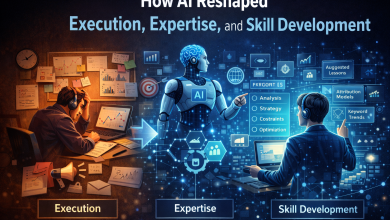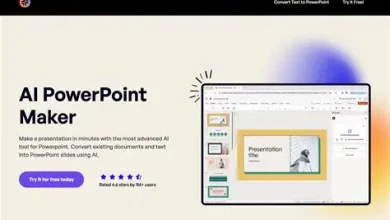
Zoom, virtual meetings, chat apps, email – those are all good ways to get in touch with potential clients. But for many companies, nothing beats live, in-person events – conferences or shows where companies can meet and greet current and new clients, enabling them to build and strengthen personal relationships in a forum where everyone attending is interested in doing business.
The data makes it clear that participation in industry events and trade shows is essential for companies that want to grow their businesses, with surveys showing that 80% of potential clients say that they are the most trustworthy source of information on products and services.
However, the logistics – and expense – of live events can make participation a challenge for many companies. Increasingly, AI – especially agentic AI – can help companies reduce the complexity – and expense – involved. AI can help companies personalize experiences for customers who visit their booths, ensure that resources – including financial resources – are being used in the most efficient manner, provide more efficient analytics for followup, develop more effective post-event contact systems, and enhance an organization’s reputation among visitors.
Smarter Event Planning
When planning for events, companies need to ensure that they will reap the maximum benefits – access to potential customers, exposure, and marketing. Too often, companies sign up for an event, hoping to get more visibility among potential clients – but with that “shot in the dark” approach, they are likely to miss out on the prospects most likely to become customers. AI can help them analyze whether an event is worth their time and effort, with tools providing insights on who is likely to attend that event, based on previous event participation data and information from within their own database on whether potential clients will be attending.
Armed with that data and based on the expected attendee mix, companies can deploy agents to contact attendees in advance of the event – offering to provide them with specific services, product demonstrations, executive briefings, and more. Because the AI-driven agent offers are personalized, based on the data garnered by the system, potential customers will be more likely to respond, setting appointments in advance. Companies can thus develop a customized experience for attendees that respond to AI agent contacts before the event – ensuring that their pitch is as effective as possible. Data shows that the average company’s ROI for events is 14% – with one qualified lead for every seven visitors to a company’s booth. With AI-driven targeted event outreach, chances are that event ROI could increase.
Ensuring Efficiency
Data shows that event participation generally takes nearly a third of a company’s marketing budget – but that figure can be much higher. From travel to lodging to participation fees to booth design, event participation can turn into a financial black hole if things aren’t planned out properly. AI systems can, of course, help companies more efficiently compute their event expenses, taking into account the expected number of attendees, costs of shipping items needed for the event, display costs, and transportation costs. In addition, AI sales agents can find out who is attending and contact them before the events; they can also shoot out automated social media messages in order to attract attention during the event.
But AI can help reduce costs even further – by automating some of the processes involved in meeting potential clients who stop by their booth. AI-driven systems can “greet” visitors, with an advanced chatbot taking in data and analyzing it on the spot in order to determine whether a lead is sufficiently qualified, along with systems that could provide “infotainment” options for visitors – quizzes, games, etc., with prizes for participants. With an AI-based “assistant,” companies could send fewer people to the event – and ensure that their time is spent on meeting with qualified leads, instead of wasting it on non-qualified leads.
Diligent Followup
Once the event is over, the real work begins; companies need to sort out the best qualified leads, contact them and develop the sales funnel. When AI systems determine which leads are the best to reach out to, AI agents can develop personalized campaigns to reach them – drafting email and social media messages, developing offers, setting meetings, and providing ongoing relationship support. Importantly, AI agents can do all of these tasks quickly, sending follow up calls or emails almost instantly, and never forgetting to respond. That fits right in with customer needs; some 60% prefer to deal with AI agents at the beginning of the sales process. Once those initial contacts are made, human sales agents can take over, developing the relationship and closing the sale.
AI systems can also help hone an organization’s future sales and marketing efforts. With the large amounts of data collected during, before, and after the event, companies can use AI systems to determine which actions proved the most effective – whether a specific message had a greater impact, or a particular outreach effort had a better response rate. With that data, companies can plan for the next event even more effectively and efficiently. In addition, AI can also create a lookalike audience, producing lists of people or companies similar to those who attended the event, creating opportunities for outreach for those beyond the event itself.
There are over 13,000 events and trade shows in the U.S. each year, and attendance – while necessary for many businesses – can be expensive, with limited ROI. Many companies really don’t have a choice; if their competition is attending, they have to as well. But with smart use of AI – in organizing, managing, and following up on their event participation – companies can raise their ROI, making attendance at an event a better, and more profitable, experience.





